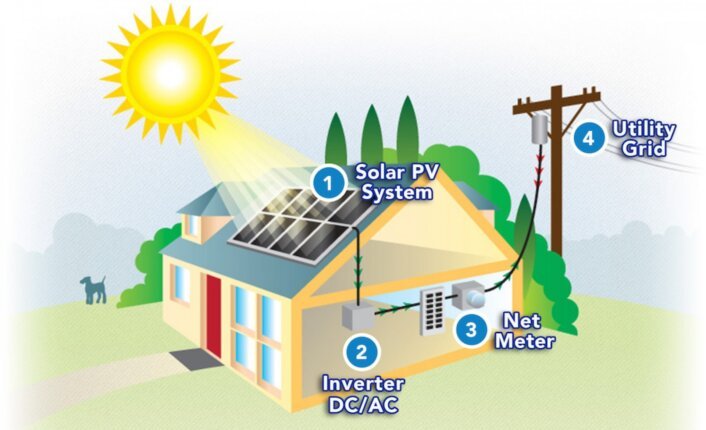Pakistan’s renewable energy ambitions are at risk after a sudden policy reversal in the solar net metering regime, leaving thousands of solar adopters in limbo and raising serious questions about the country’s commitment to clean energy.
Between 2022 and 2024, rooftop solar boomed across Pakistan, driven by government incentives and high buyback rates of Rs27 per unit. By mid-2025, net-metered capacity had reached 2,813 MW, with over 280,000 registered households.
But this progress is now threatened by the government’s decision to slash buyback rates to just Rs10 per unit, a move critics say will discourage future investment and harm existing solar users.
“The government promoted solar power as a solution but is now treating it like a burden,” said Mian Sohail Nisar, a leading voice for industrial and commercial solar users.
Why the Backtrack?
Power sector insiders say the financial strain on the grid is driving the rollback. As more solar users sell excess electricity back at high tariffs, utility companies claim they cannot recover fixed costs, shifting the financial burden onto regular grid consumers.
In 2024, this imbalance cost non-solar consumers Rs159 billion, with future projections hitting Rs4 trillion over the next decade if no reforms are made.
However, experts argue the real issue is outdated grid infrastructure that cannot handle reverse power flows, coupled with poor planning. “Instead of upgrading the network, the government is penalizing those who invested in clean energy,” a former power official noted.
From Net Metering to Gross Metering
The sudden introduction of gross metering, which bills separately for imported and exported electricity, has further confused and frustrated consumers. Energy analysts say policy changes like these should be gradual and consultative, not reactionary.
Impact on Consumers & Investors
Households and businesses who invested heavily in rooftop solar—many with hybrid inverters and storage batteries—feel betrayed. Not only will their payback periods lengthen, but reports suggest smart meters are being covertly replaced to curb excess buybacks.
A History of Policy U-Turns
Pakistan’s power sector has long been plagued by policy inconsistency—from hydropower projects to LNG imports and now solar energy. Experts warn that such reversals erode investor confidence and delay the country’s transition to affordable, sustainable energy.
Energy analyst Syed Farid Hussain summarized the challenge:
“You cannot expect a smooth clean energy transition without aligning grid upgrades, pricing reforms, and consumer protection. Without a unified roadmap, piecemeal reforms only add to the crisis.”
With circular debt surpassing Rs2.6 trillion and a widening mismatch between demand and capacity, Pakistan risks losing momentum on its renewable energy goals.



